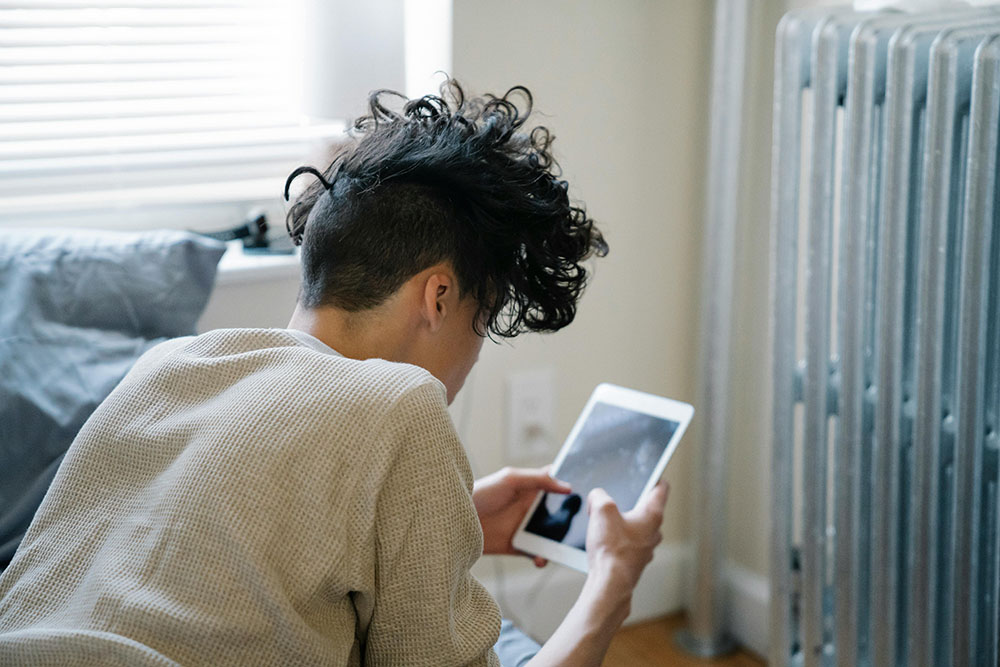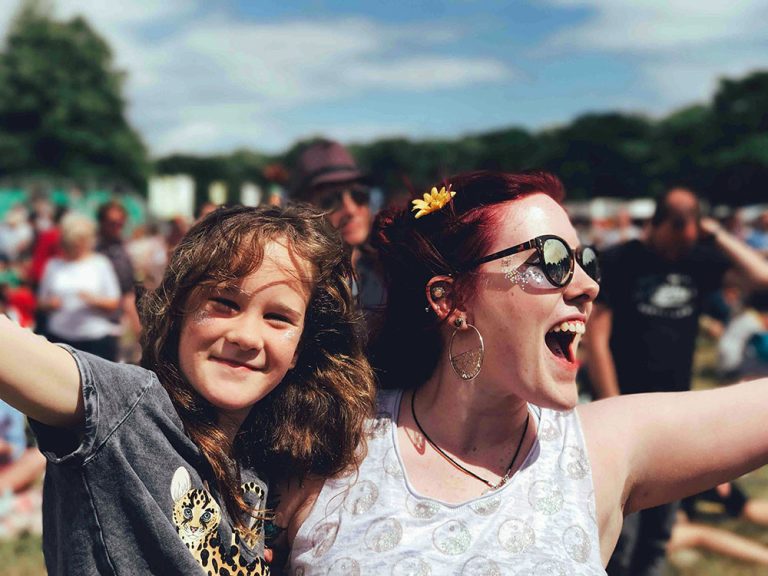
In today’s digitally connected world, the landscape of social interaction has dramatically transformed, especially for teenagers. Social media platforms, while offering unparalleled opportunities for connection and self-expression, have also introduced new challenges and pressures. For many teens, the quest for likes, followers, and validation can exacerbate feelings of inadequacy, leading to heightened levels of social anxiety. The constant comparison to seemingly perfect lives portrayed online can leave teens feeling isolated and overwhelmed.
Social anxiety, characterized by intense fear and avoidance of social situations, can significantly impact a teen’s daily life, academic performance, and overall well-being. It manifests in various ways, from the dread of participating in class discussions to the fear of attending social gatherings. The good news is that there are effective strategies and therapies available to help teens navigate these challenges.
Dialectical Behavior Therapy (DBT) has emerged as a powerful tool in treating social anxiety. Originally developed to treat borderline personality disorder, DBT has been adapted to address a range of mental health issues, including anxiety. By focusing on skills such as mindfulness, emotional regulation, distress tolerance, and interpersonal effectiveness, DBT equips teens with practical tools to manage their anxiety and improve their social interactions.
In this blog, we will explore how social media influences teen social anxiety and delve into the principles of DBT as a therapeutic approach. We aim to offer insights and practical advice for teens and their families to better understand and manage social anxiety in our digital age.

How Social Media Can Contribute to Depression and Social Anxiety
Social media can be a double-edged sword for teenagers. On the one hand, social media platforms such as Instagram, TikTok, and Snapchat have revolutionized how teenagers connect and share information. On the other hand, studies have shown that overuse of social media can lead to negative impacts on mental health, such as increased anxiety, depression, and low self-esteem among teenagers.
Here are some of the top contributing factors:
- Constant Social Comparison. Teens today face constant pressure to curate the perfect image of their lives for their social media profiles. Comparing themselves to their peers’ filtered and edited lives can fuel feelings of inadequacy and low self-esteem.
- Fear of Missing Out. Curated social media posts give the impression that everyone else lives exciting and eventful lives. This can lead to worries that you’re missing out on important social events or experiences, contributing to anxiety and sadness.
- Sleep Deprivation. Excessive social media use, especially at night, can interfere with sleep. Lack of sleep is linked to mood changes and mental health issues in teens, like irritability, impaired concentration, and symptoms of anxiety or depression.
- Cyberbullying and Online Drama. Unfortunately, social media platforms have become a means for cyberbullying. Being the target of cruel comments, threats, or harassment on social media can have devastating effects on a teen’s mental health and self-esteem.
 Building Social Confidence: The Power of Mindfulness, Interpersonal Effectiveness, and Emotional Regulation
Building Social Confidence: The Power of Mindfulness, Interpersonal Effectiveness, and Emotional Regulation
Developing social skills and building confidence in social interactions are crucial for navigating the complexities of teenage life, especially in a world dominated by social media. Key to this journey are the core skills of mindfulness, interpersonal effectiveness, and emotional regulation combined with self-awareness.
- Mindfulness helps teens stay present and grounded, reducing the overwhelming effects of anxiety by focusing on the here and now.
- Interpersonal effectiveness provides strategies for building and maintaining healthy relationships, ensuring that teens can communicate their needs and boundaries clearly and assertively.
- Emotional regulation, along with self-awareness, equips teens with the tools to understand and manage their emotions, preventing them from being swept away by anxiety or stress.
Together, these skills form a robust foundation for developing social confidence and resilience, enabling teens to engage more fully and authentically with the world around them. Adolescent therapy at Suffolk DBT can support your teens as they develop their social skills in these important areas.
Mindfulness
One effective way to help your teenager counter their anxious and depressive thoughts is by promoting the practice of mindfulness. Encourage them to be present in the moment by noticing their breath and being aware of how their body feels. Speak with them about the dangers of mindless scrolling, and practice together a new approach to social media apps that involves being curious about the purpose they serve. Why are you drawn to social media in this moment? What do you want to gain from it? How do you want to feel after it?
Encourage them to focus on the positive details in the photos and updates they see and avoid comparing themselves to others or worrying about other people’s opinions. This will help them appreciate their uniqueness and lead to a more positive and constructive mindset when confronting the realities of social media and depression.
- Curate your feed. What kind of creators and content do you follow? Consider thoughtfully who and what you’re allowing access to your feed and encourage your teen to do the same.
- Share Selectively. When your teen posts on social media, encourage them to share meaningful moments from their life, not just curated images that present an unrealistic lifestyle or perfect selfies. Remind them that true friends will appreciate seeing a mix of highlights and candid, unposed snapshots. Limiting social media use to selected positive posts helps curb unhelpful social comparisons and lessen anxiety.
- Limit Social Media Use. Teach teens how to use social media responsibly. If you see that your teen is using social media and beginning to feel anxious, depressed, or inadequate, help them establish healthy boundaries.
- Take a Break. If your teen is anxious or stressed, try distracting them from social media by suggesting a fun activity or hobby. Time away from social media can help them see what’s causing their anxiety and learn how to manage it better.
Interpersonal Effectiveness
As a parent, you have the power to guide your teen in using social media as a positive and constructive tool. You can encourage your teen to make genuine connections on social media, displaying their care by posting comments and sharing updates, photos, and life events that reflect their true personality. Encouraging them to focus on quality rather than quantity within their connections and engaging with individuals who share similar interests and values can create a more enriching experience.
- Practice Healthy Boundaries. Teach your teen about what is and isn’t appropriate to share via social media posts. While the younger generation is more comfortable with sharing vulnerably online, ensure that they know the validation that comes with in-person communication with an attuned other. Ensure they know that superficial validation online will never fulfill them the way their offline relationships can.
- Stay Connected Offline. On that note, encourage your teen to stay connected with friends offline by calling them, having them over for dinner, joining local clubs, or volunteering. Face-to-face interactions provide opportunities to strengthen communication skills, empathy, and resilience against anxiety and depression.
Emotion Regulation
When your teen encounters a social media post that triggers negative emotions, encourage them to pause, identify the feelings that arise, and choose a constructive response. Remind them that they have control over their reactions.
- Pause Posting, Commenting, or Messaging. By reflecting on our thoughts and emotions, we can avoid making impulsive decisions that can cause harm. Pausing before posting, commenting, or messaging can help us gather our thoughts, think more clearly, and communicate more mindfully and respectfully.
- Limit Social Media Use When Distressed. Limiting time on social platforms when upset can also help your teen avoid unhealthy ruminating or comparing themselves to others online. Motivate them to take a social media break to engage in other activities like making art, playing music, or playing some of their favorite sports.
- Practice the DBT skill Opposite Action by Posting or Commenting on Something Positive. Prompt your teen to offer compliments and words of encouragement to others. This can help improve your teen’s mood and encourage more constructive contributions.
Is is possible for teens to have a healthy relationship with social media?
Cultivating a healthier relationship with social media is a journey that requires consistent mindfulness and effort. Navigating social media challenges and mental health challenges like social anxiety and depression adds more complexity to this journey. But with patience and perseverance, even the slightest positive shifts in your teen’s social media habits can make a big difference over time. By gradually developing greater self-awareness and implementing the coping strategies shared above, your teen can navigate the digital world in a way that nourishes their well-being.
Support for Socially Anxious Teens on Long Island
If your teen struggles with anxiety, depression, or isolation due to social media, we encourage you to seek professional help from experienced DBT therapists at Suffolk DBT. Seeking professional help from a DBT therapist for anxiety and depression can provide valuable support for teenagers. We can help your teen build resilience and learn to manage life’s challenges. Small, consistent steps toward change can make a profound difference over time. Your teen has the strength to take charge of their social media use and mental health. They are not alone; together, we can guide them to develop healthier digital habits and nurture their emotional well-being.








